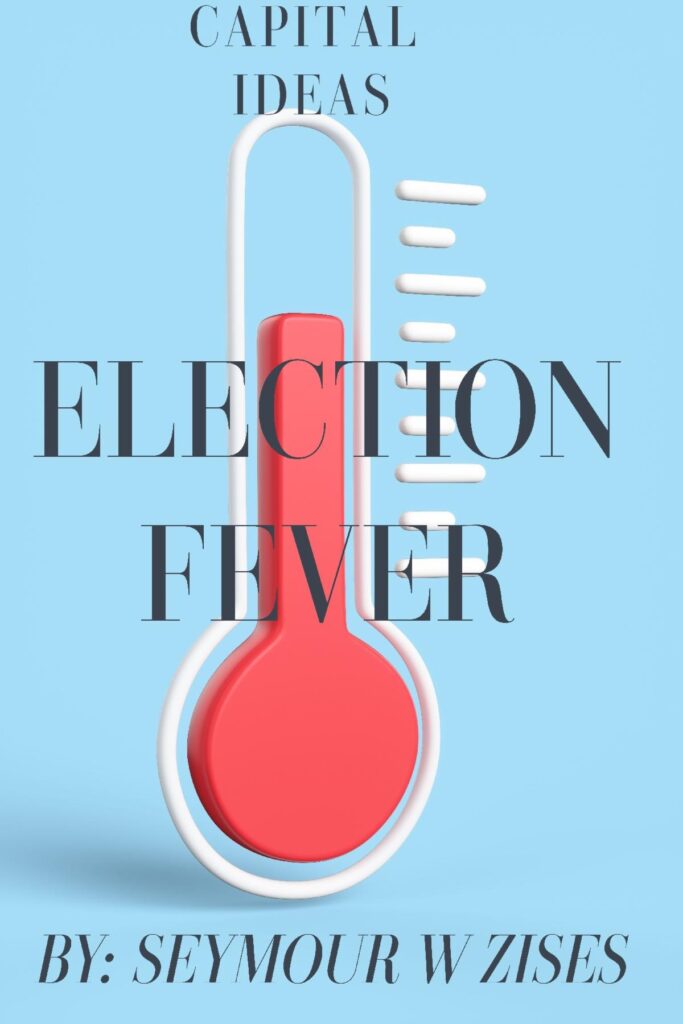Election Fever

The election is approaching rapidly and there is already anticipation of rancor over the results. Whoever thought it would be this way in the USA?
The economic policies of the 2024 presidential candidates could significantly impact the US economy. Kamala Harris focuses on tax increases for corporations and wealthy individuals, housing initiatives, and expanding child tax credits. Donald Trump emphasizes tax cuts, reducing regulation, and increasing tariffs.
The biggest problem for the United States economically is the enormous US deficit. According to the Congressional Budget Office, the 2024 US deficit is expected to grow from $1.9 trillion to $2.8 trillion by 2034. This rising deficit could limit fiscal policy options, and strain public programs like Social Security and Medicare.
The current US budget deficit is substantial, but not unprecedented. Historical highs occurred during World War II, with deficits exceeding 20% of GDP. The recent deficit, while significant, around 5.6% of GDP, impacts less on your financial situation compared to those historical peaks.
The recent stability of oil prices is a positive development for consumers and businesses. It appears oil will stay in a range of $70-$85 per barrel. However, continued war in the Ukraine and the Middle East could push prices higher.
China recently came out with a large stimulus package that is reminiscent of the Federal Reserve’s response to the Global Financial Crisis in 2008. Indeed, the PBoC announced numerous initiatives targeting the real estate and stock markets. This includes reducing mortgage rates and down payment requirements. There are also initiatives for refinancing company bank loans and providing liquidity for firms to buy back their own stock. Given US stock markets are near all time highs and economic growth has remained resilient, it’s not surprising to see China look to prop up their economy which has languished relative to its developed market competitors.
The current federal funds rate is 4.75% to 5% following a recent 0.5% cut by the federal open market committee in September 2024. The primary channels by which the federal funds rate impacts the economy is through housing (primarily through their impact on mortgage rates), and consumer credit (through lower auto loan and credit card rates). Given that rates have been elevated over the last few years, it’s unlikely this modest reduction will spur significant new demand.
Additionally, the Fed’s rate cuts encourage new construction by making it cheaper for builders to finance projects. This could help alleviate some cost supply constraints that contributed to rising home prices. However, there is a lead time for new homes to be built and come to market. Nevertheless, despite mortgage rates being lower, affordability remains a significant issue due to high home prices. Many first time buyers still face challenges competing for homes in a given market, with limited inventory, particularly for starter homes.
In summary, the US economy is expanding, but at a slower pace, with GDP growth expected to decelerate to 2% by the fourth quarter of 2024, down from 3.1% in the fourth quarter of 2023. Inflation is moderating which means the pace of the rise in prices is slowing, but elevated prices remain compared to pre-COVID. The evidence so far is that the US economy will indeed pull off a soft landing. Labor market tightness has dissipated as evidenced by falling wage growth.
A relevant quote often attributed to Albert Einstein, “Not everything that can be counted counts, and not everything that counts can be counted”.
We certainly hope that in this year’s election, there is no dispute regarding the vote count and resulting outcome.
G-d bless America !
As Always,
Seymour W Zises


